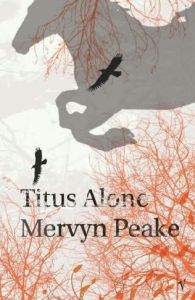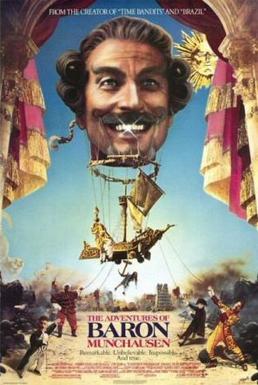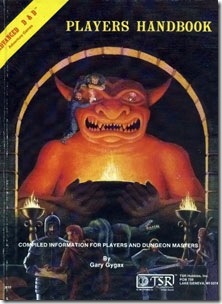Late last year, I was asked to write the introduction to Overlook Press’ new edition of Mervyn Peake’s Titus Alone, last novel of the so-called Gormenghast Trilogy. Considering that the first two books, Titus Groan and Gormenghast, had introductions written by Anthony Burgess and Tad Williams, respectively, I felt pretty honored to get the invitation.
Today I’ve received word that the books have actually come off the press and should appear in bookstores all across the U.S. soon. So, with the permission of Overlook Press, I’ve posted the introduction in its entirety below. After you’re done, go visit the Overlook Press web page for the book, and pick up a copy from Amazon. (Update 5/29/08: And also visit the Mervyn Peake blog, run by his son Sebastian. Sebastian was nice enough to write about this introduction there.)
 Now here’s the introduction. You may notice that I’ve borrowed liberally from my blog entry about Titus Alone posted over a year ago. Page numbers refer to my Vintage Press UK edition of Titus Alone (because I don’t actually have the Overlook Press edition in my hands yet).
Now here’s the introduction. You may notice that I’ve borrowed liberally from my blog entry about Titus Alone posted over a year ago. Page numbers refer to my Vintage Press UK edition of Titus Alone (because I don’t actually have the Overlook Press edition in my hands yet).
*
Did Mervyn Peake go mad writing Titus Alone, or does Titus Alone merely predict his madness? Is it a work of dystopian science fiction, or a work of psychological symbolism? Is the book a terse masterpiece, or is it just the half-formed ravings of a crumbling mind?
What the heck is this book you’re holding?
Let’s start with the facts. Mervyn Peake was a noted artist and illustrator of children’s books who spent his formative years in China. He published the novels Titus Groan (1946) and Gormenghast (1950) to excellent reviews, though not resounding commercial success. After the failure of his play The Wit to Woo (1957), Peake suffered a nervous breakdown. Parkinson’s disease, electroshock therapy, and brain surgery would follow over the next decade. Peake spent his last years in institutions, finally passing away in November of 1968. His works would dip briefly into obscurity and academic disfavor — Kingsley Amis once famously dismissed him as “a bad fantasy writer of maverick status” — before enjoying a critical and commercial renaissance that continues to this day.
Eyre & Spottiswoode originally published Titus Alone in 1959, and the book has been the target of critical dissatisfaction ever since. It’s barely half the size of Titus Groan and Gormenghast, leading some to conclude that Peake was only half-done with it. Given Peake’s mental state at the time of publication, others have assumed that the author was in no condition to write a novel. Regardless of the reason, Titus Alone is generally considered the least of the three Gormenghast books.
Why the fuss? Well, there’s no delicate way to put it: this book is bizarre. Even by the standards of the previous Gormenghast novels (which aren’t exactly models of straightforward narrative), Titus Alone stands — well, it stands alone. Titus spends the entire book wandering through a sparsely described dream world pursued by two silent, faceless policemen. He journeys through an underground realm filled with derelicts and runaways. There’s a beggar who eats money, and a remote-controlled glass spy globe. One of the main characters spends a good deal of the book with an ape on his shoulder.
In the last words of Gormenghast, Peake writes that “Titus rode out of his world.” Who would have imagined that Peake meant it literally? Titus Groan and Gormenghast take place in some undefined location in what seems to be a pre-Industrial setting. But in Titus Alone, there are flying mechanical needles, death rays, and a factory filled with mysterious bad smells. Muzzlehatch drives a car, Cheeta rides in a helicopter, and Cheeta’s scientist father talks to his subordinates through a videoconferencing system. Crabcalf informs us that someone or something named “Molusk” has recently circled the moon. (A successor to Sputnik?) All this technology implies that the novel takes place in the near future, yet nobody Titus encounters has heard of Gormenghast. Gormenghast, a castle so enormous that you can wander its rooftops for days without seeing the end of it.
But the setting isn’t the only incongruity between Titus Alone and its predecessors. The books have vast differences in style and tone as well. Peake ambles through Titus Groan and Gormenghast with page after page of (glorious, lyrical) exposition; but in Titus Alone, he takes the linguistic express route, zipping through descriptions of even central characters like Cheeta and Muzzlehatch in a mere sentence or two. The first two books make only the vaguest mentions of a higher power; this book brims over with Biblical allusions. Titus Groan is entirely sexless, and Gormenghast approaches the subject with the utmost discretion; Titus Alone is bursting with sexuality, both expressed and repressed. (Can you imagine anyone in those first two novels saying, as Titus says to Cheeta, “let me suck your breasts, like little apples, and play upon your nipples with my tongue”?) (p. 166)
So the first question to ask is this: how much of Titus Alone is Mervyn Peake switching gears, and how much is Mervyn Peake losing his marbles?
Read more
 I felt like that in 1989 when I saw Terry Gilliam’s masterpiece The Adventures of Baron Munchausen.
I felt like that in 1989 when I saw Terry Gilliam’s masterpiece The Adventures of Baron Munchausen.



 Now here’s the introduction. You may notice that I’ve borrowed liberally from
Now here’s the introduction. You may notice that I’ve borrowed liberally from  Scott Edelman and I bumped into each other several times and shared a plane flight home. As you can see by the photo on the right, the meeting didn’t go so well. (You can see more of Scott’s photos from WFC 2007 on his
Scott Edelman and I bumped into each other several times and shared a plane flight home. As you can see by the photo on the right, the meeting didn’t go so well. (You can see more of Scott’s photos from WFC 2007 on his